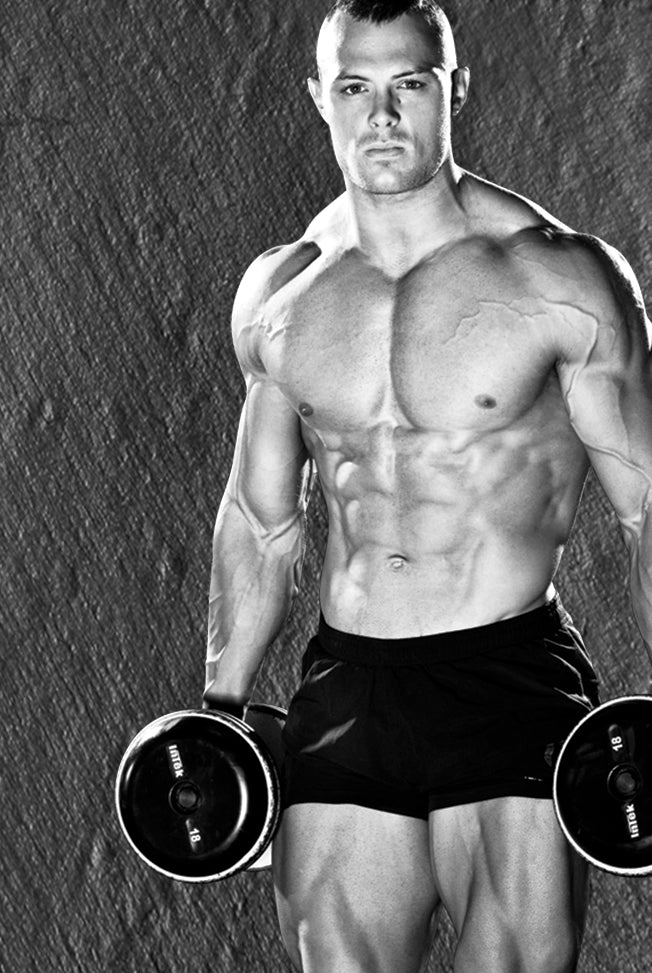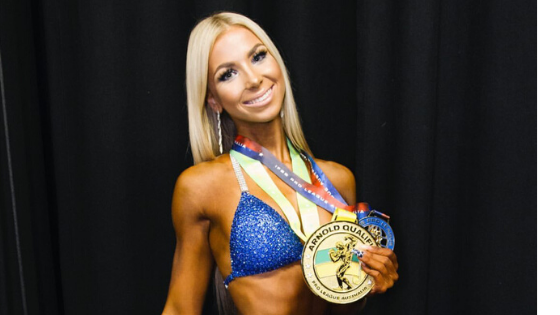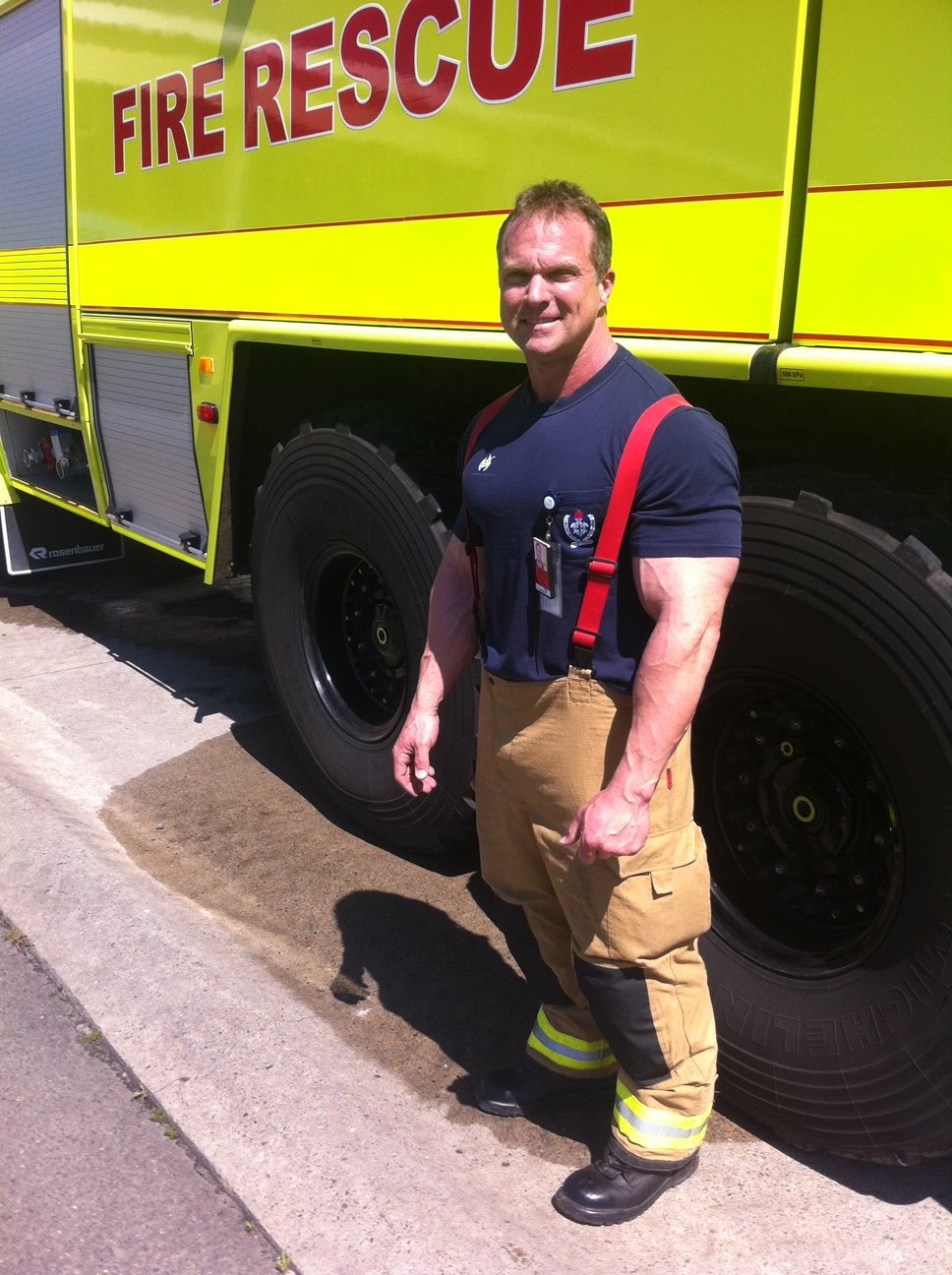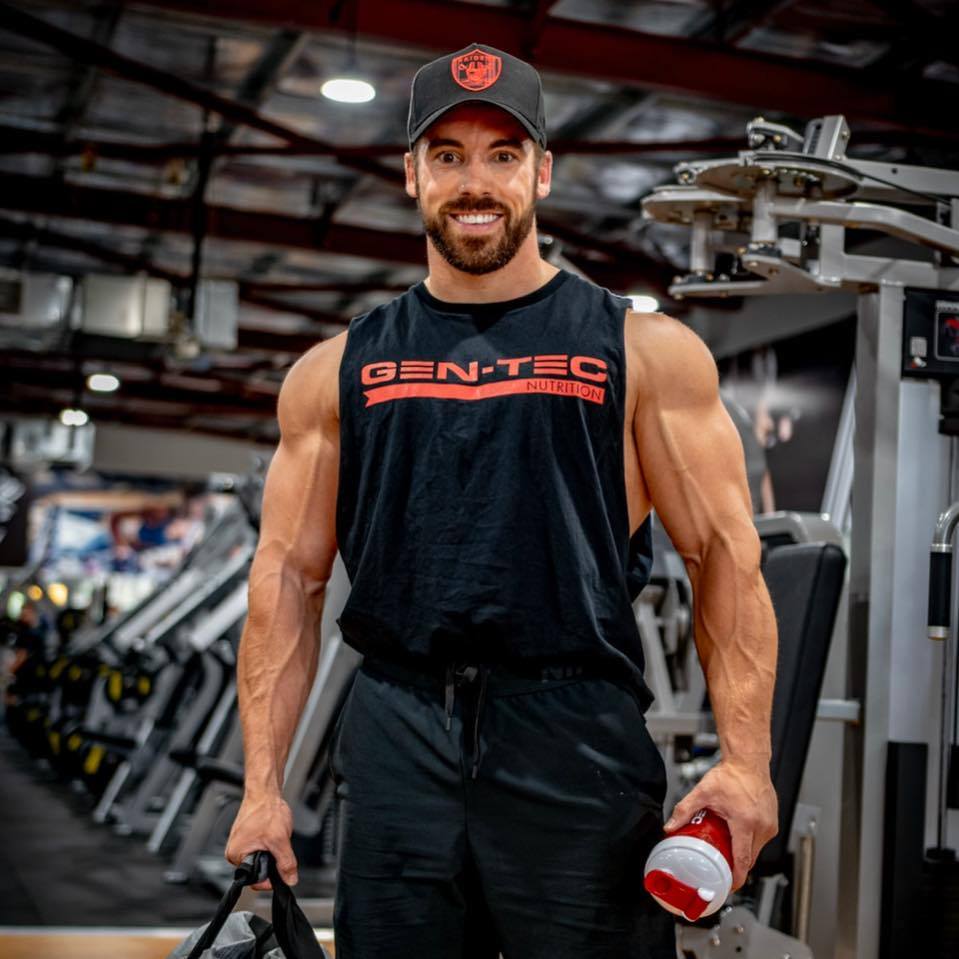Your Cart is Empty
FREE SHIPPING FOR ORDERS OVER $100
FREE SHIPPING FOR ORDERS OVER $100
FREE SHIPPING FOR ORDERS OVER $100

September 06, 2019 7 min read

Gen-Tec Nutrition athlete and champion natural
bodybuilder Nathan Wallace talks about how he manages to juggle business,
family and training in order to lead a balanced life.
Do you have a renewed appreciation for people who can train and compete with so much on their plate?
Well, obviously running a business is one thing; for a lot of people that’s enough but running a business on top of having a family and doing all that sort of stuff, it’s crazy. It’s a real juggling act and it does give you a real appreciation for people who can do it. Back when you’re younger, you didn’t think about what a person was going through personally whereas now I look up to the guys that have a family, have a business and are still successful. Obviously, Nick Jones is one of them. He’s got Gen-Tec, the family, still trains, still in good nick. There’s other guys as well I know that have businesses and some of them have multiple businesses and train, very high-level natural bodybuilders.
So it’s one of those things where you do start to realise and notice the guys who are in a similar situation. It gives you a new appreciation for what everyone is doing; it’s not just that ‘oh that guy has an amazing physique’ or ‘that guy’s business is amazing’, it’s ‘these are the ones who are putting it together’ and there are some guys out there, like Nick, who are doing amazing things and putting it all together and able to balance and juggle everything.
What are the secrets to success in maintaining all those things?
It’s definitely the balance, you’ve got to make sure you’re happy how the balance is in your life. When I’m happiest is when I’m managing and putting in a lot of family time. That will then relay over to enjoying the other areas as well. So, if I’m really enjoying home life and family time, then I’m going to be more productive in my work life. Which means that when I’m happier, I seem to train better; it’s kind of a steamroll effect. I think potentially it comes back to, for me anyway, when family time is good and I’ve got that balance right, with a good amount of time with family, I seem to be more productive with the other areas, meaning I’m not spending as much time having to do work because I’m more productive while I’m working. And that sort of thing, so I think just enjoying it and being happy with the balance that you have, that’s probably the key.
So, when you’re with family, let it be family time. And then also, when I’m working I try to make sure that I’m just working. And look, sometimes you have to bring the kids around when you’re working and stuff like that but that’s when things gets mixed and it does get kind of hard and you’re not very productive. That’s when I find I get stressed. Whereas if I can almost kind of separate them so I’m really focused, it’s better. Like with family, I definitely separate work away from that; if an email comes through or something like that I know I’ve got to get back to, I’ll make sure I’ll get back to it as soon as I’m available away from my family, not ‘oh shivers, I better get back to this email right now’. So I’m just making sure that my quality time with those aspects of my life is quality.
How has your approach towards training changed since the days that you were getting titles in powerlifting and natural bodybuilding?
My philosophy hasn’t changed that much. I’m probably slightly smarter with the way I go about it. I’m not so reckless as the way I used to go about it. When I was younger I was able to go to failure every single set and virtually just break myself down over and over and over again and come back, whereas now I’ve got to realise there’s a big difference. For example, I might only have one good set of squats in me once a week. If I was to keep completely pushing myself to failure and smashing myself it might mean that I’m just going to get injured. So now it’s just making sure that I’m managing my body and recovery right while still being able to progress. And I’ve had injuries in the last couple of years where I’ve had surgery and had to really take a look over how I was training. The basic principles are still the same, progression is still the same, periodisation is still the same; it’s just how I go about that. When I was younger, I had to try to make as fast a progression as physically possible, whereas now as long as I am progressing forward, I’m happy.
Do you think you’ll compete again?
I’d like to. I was actually planning on doing this year but my hip just hasn’t been up to it. I had surgery for a labral tear in my right hip last year and the plan was always 2018, even a few years ago I kind of planned to have four-to-five years off so I was kind of thinking 2017-18. We had the girls and I wanted to make sure I spent a good amount of time with them early on and not sacrifice that, so I was thinking 2018 but then I had the surgery last year, which kind of put things off. Even still, I had 2018 in my mind, but early on this year my hip started feeling a bit funny, felt like I was pushing it a bit too fast and I’d started regressing in my recovery and having to actually back off for a while.
And then [wife] Sophie [Guidolin] was competing so I had to put less effort
into myself and my own training and more into her, to make sure that she was
going well and doing the things that she needed to do. Which meant that
probably put my competitiveness back a year or two, just because I was really
pushing to try to get this year. But I’ve got to now play it by how my body’s
feeling and with the hip unfortunately I have that limiting factor where I
can’t push as hard and fast as I’d like to. I’ve just got to do what we said before,
just gotta make sure I’m progressing at the rate that my hip is going to allow
me to progress, not at the progression that I want it to progress. That was
what was happening earlier this year.
A lot of people, when they have a business and family, certain interests will drop off. Have you felt a struggle with the energy and motivation towards competing?
The fire’s definitely still there. Obviously when I was younger, I was single [laughs]; there was nothing else in my life. I mean, I worked and that was fine but I worked as a means to get by to be able to bodybuild. Bodybuilding was it. That was my number one priority in my life. Now it has dropped, we’re talking as a priority, it falls down the list, you know with family obviously coming first and then business; those kinds of things come before competing now.
So, priority-wise, competing’s not there. But the fire is still there to compete; it’s not like I don’t want to, I still definitely want to. I talk about this with friends all the time that I can’t wait to be able to get back up on stage again but it’s not one of those things where I need to. It’s one of those things where I really want to. Whereas previously it was probably more of a need. I just needed to do it; that’s what my mindset was anyway. Whereas now it’s ‘I want to do it — if I’m able to’.
And if the timing’s right and the business is good, the family’s good, and my body’s good, then I can actually go for it. Those three things, the stars align kind of thing. And once those stars are aligned I’ll be able to do it and I know I’ll be able to do it. Brining my body back to where it was is important because I’m very stubborn in the fact that I don’t want to jump back up on stage not being better. I’ve got to, first of all, get my body back. I don’t like competing for the sake of competing. That’s not who I am, someone who just jumps up on stage because I enjoy the dieting process or I’m very competitive. I am very competitive but I’m big on improvements and improving. So, if I don’t see that I’m going to be better than what I was, then it doesn’t drive me. Whereas if I see that I’m going to be better, then that’s what drives me.
Not even as a competitive thing; like I’m very competitive in that I don’t like
to get beaten at all but also the main priority is just improving on myself. If
I jumped up on stage knowing I’d given it 100 per cent, I’ve improved and I get
beaten, then I’ve just gotten beaten. But if I was to jump up on stage, hadn’t
improved, knew that I hadn’t put in 100 per cent THEN I would be upset.
So you’re more driven by self-improvement than winning?
Now I am. When I was younger it was probably a bit different. When I was younger I was like, ‘I can’t lose, I can’t lose’. That was just my mindset. Whereas now, yeah, I definitely don’t want to lose — I don’t like losing at all — but I’m now just searching to improve.
Would you say that your competitive side is just about beating your schedule?
Now that I’ve competed and done well, I know that my best previously is good enough to beat a lot of people and to be up there with some of the top guys in the world. I know if I can get to there, I’ll be very competitive, so I know that I can be there so if I’m better than what I was previously, it’s going to put my chances even higher of winning. I know that they both correlate to each other. If I can bring in a better package than last time, it’s going to give me a very good chance of winning, so it kind of goes back and forth between the two. So even though I’m not competing, say, purely just to win, I know that by bringing in my best package, it’s gonna give me the highest chance of winning.
You can follow Nathan’s journey on Instagram at @nathanwallace_
Comments will be approved before showing up.

June 24, 2020 3 min read

May 07, 2020 4 min read

April 01, 2020 3 min read
Be the first to know about upcoming sales and promos. Get a 10% discount coupon when you subscribe!